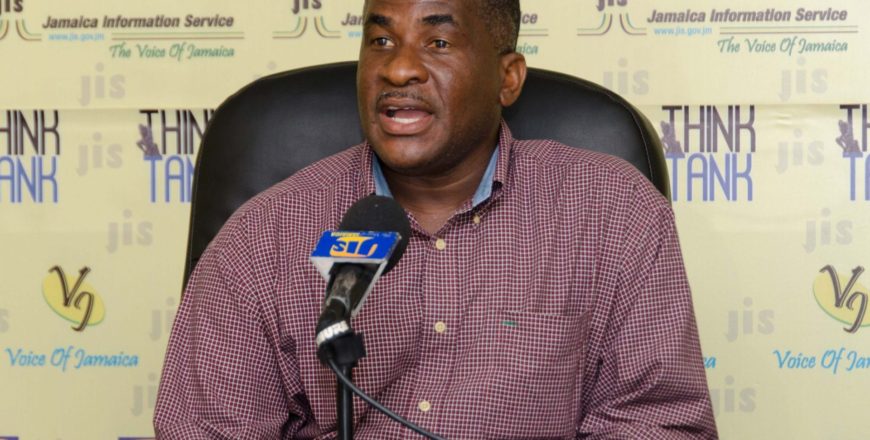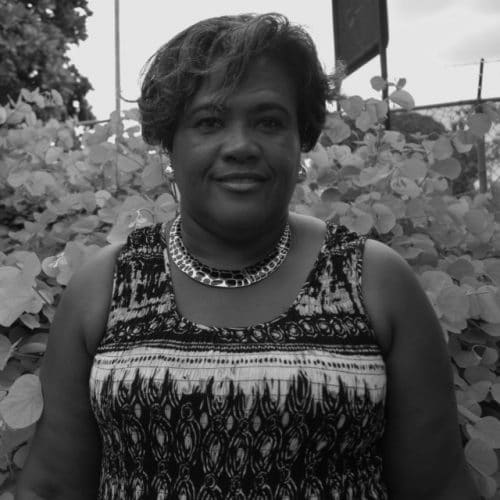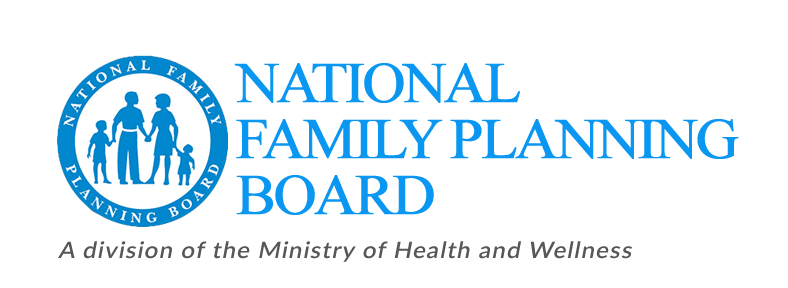
HIV Activists Fighting Against Stigma and Discrimination
JIS FEATURES
DECEMBER 2, 2019
WRITTEN BY: PETA-GAY HODGES

Photo: Donald De La Haye
Two of Jamaica’s staunchest campaigners for the upliftment of persons living with HIV/AIDS are encouraging Jamaicans to join the fight to eliminate stigma and discrimination against persons, who are afflicted with the virus. Joan Stephens, who is a Community Facilitator for the Jamaica Network of Seropositives (JN Plus) South East Division (Kingston, St. Andrew, St. Catherine and St. Thomas), has been living with HIV for 19 years.
She has been working assiduously in the field to provide support to persons living with HIV.
Miss Stephens tells JIS News that her organisation plays a vital role in addressing stigma and discrimination. “I communicate with persons within the region, who are HIV-positive. I use the database to check up on members to see how they are doing and if there are any issues, I will pass it on to the relevant authorities to deal with it,” she says. “We look at how they are treated when they go to clinic,” she says.

She says that “at certain health centres, the doors are labelled so when patients go in, other individuals know that they are HIV-positive,” noting that the this practice is discriminatory. Miss Stephens relates her own experience and how she was received after her diagnosis became public. She tells JIS News that when she discovered that she was HIV-positive, she was employed at a well-known manufacturing company in Kingston.
She says that she struggled in the workplace after her co-workers got wind of her condition, and the news spread throughout the organisation.
She recalls hearing her colleagues discussing her condition.
“They were the ones telling others and not giving me the chance to do it myself,” she says.
According to Miss Stephens, she became extremely frustrated and decided to try to counteract the rumours by publicly declaring her status. “I went to my doctor and told her I was fed up and that I had decided that I was going to tell everybody because I was sick of the stigma,” she says. At the time, she says, the doctor asked, “Do you know what it is to disclose? and I responded, ‘Do you know what it is to live with this thing?’
The JN Plus Community Facilitator tells JIS News that it was Ainsley Reid, who has been the face of the National HIV Programme for some 25 years, who provided support when she decided to go public with her condition.
“When I first came out as being HIV-positive, Mr. Reid was with me at my former workplace. He is a known face so they are not going to see him any differently. I am new to this and I had started to tell people that I am HIV-positive.”
Miss Stephens says she is now more discerning about whom she tells about her condition.
“It depends on what comes up. If HIV comes up, I listen to what they have to say first, take in everything then declare my status as well. Sometimes people respond with disbelief, because they figure that you are going to look completely different from them,” she explains.
She relates an experience during a meeting at a corporate entity when someone made the statement that ‘people living with HIV shouldn’t be among other people’.
“I stood up and asked ‘should I be put away?’. The individual’s response was ‘No, after you nuh stay suh’,” she recalls. She says she uses the incident to illustrate that “HIV doesn’t have a face.”
“We look like every other human being as long as we are taking our medication and taking care of ourselves. You cannot tell,” she notes.
Meanwhile, Mr. Reid has been a constant champion in the struggle for proper treatment of persons living with HIV/AIDS. For the past 11 years, he has been employed as the Greater Involvement of People Living with HIV/AIDS (GIPA) Coordinator within the Ministry of Health & Wellness and the National Family Planning Board (NFPB). Mr. Reid tells JIS News that it important for the community of people living with HIV to share their experiences as they contend with issues pertaining to HIV in everyday life.
He cites the experience of an actress, who felt stigmatised and discriminated against by her associates and community after portraying a person living with HIV in an advertisement, as typical of what persons with HIV regularly endure.
He says it is important to use persons who are living the experience to highlight the struggles of the community.
“I think that the experience of that young actress shows that if you are representing our community, you need to be real. If you are speaking about treatment, you must be real because people are going to see you as a role model,” he notes. “We are not actors or actresses. We are real people and we have very progressive relationships with people in our communities and homes,” he adds.
“It is important for us to be the ones to show our side of the story. Sometimes we face discrimination but we have to frame it positively,” he notes further. Mr. Reid tells JIS News that he has had experiences where persons point him out as being one of the most recognisable faces of persons living with HIV based on the number of national campaigns in which he has participated. “That is a reality. I cannot say I am not living with HIV/AIDS. What I can do, however, is show that I am getting along with life. I am taking my medication every day and I am much better than I was a few years ago”.
Mr. Reid has been living with HIV for 27 years, having been diagnosed in 1992. “I have been living with HIV for a long time, so I have had to frame many things differently in order to improve my quality of life,” he says.
He noting that having a positive mindset is key to ensuring good health.
“It’s not just about taking your meds, it’s also about thinking positively and telling yourself that you need to live because regardless of what it is, something will take us out of this world whether we like it or not. But because of how HIV affects some people, it will bring you low if the mindset is not positive” he adds.
He implores members of the public to “not look down on persons who are living with HIV because of what is happening to them. You may have it and don’t know, because you won’t see it, but when the time comes you’ll want people to reach out to you and show you love. If we were to deal with everyone according to how they deal with us, where would the world and society be?” he laments. Mr. Reid says that although there are some persons, who have good experiences with the love and support of their families, there are also those who have shared the challenges of not disclosing. “They won’t disclose to family because they might get turned out and they won’t disclose to a partner because they might be physically hurt,” he says.
Support for persons living with HIV is available at numerous agencies such as JN Plus, the National Family Planning Board and Jamaica AIDS Support for Life.



Recent Comments